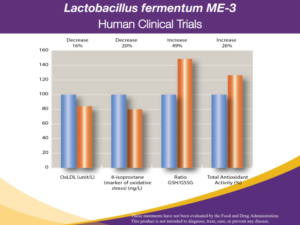Several of our brokers have asked which is more effective at boosting glutathione levels. This is an interesting question, and I hope the following information will help you address this question when asked.
The short answer is, no one knows. No study has ever been conducted to assess whether NAC or ME-3 is more effective at raising glutathione levels. Studies like this are expensive and generally need to be privately funded. But, here is how such a study could be designed.
- Select a group of animals (or humans) and randomly divide them into two groups (Group A & Group B). NOTE: human trials are much more challenging to get approval for and are much more expensive to conduct. This is why trials are initially conducted in lab animals. For this ‘mock’ experiment, let’s use human subjects.
- Measure glutathione plasma levels in all subjects before the start of the trial.
- Put NAC or ME-3 in identical-looking opaque capsules and “blind” them so that neither participants nor scientists know which substance each individual is given.
- After two weeks, stop the experiment and measure post-test glutathione levels.
Some considerations for study design. Many people are usually involved in a clinical trial, such as scientists, medical personnel, lab technicians, a biostatistician, a peer review committee, etc. Blood draws require special care, blood draw technique, proper storage, and shipment of samples to ensure glutathione levels don’t decline before they reach the lab for analysis. It goes on and on.
HOW TO REASON WHICH IS MORE EFFECTIVE: NAC OR ME-3
Every cell in your body makes glutathione. This process requires the following two enzymes: glutamyl cysteine synthetase and glutathione synthetase.
STEP 1: In part one of this process, the enzyme glutamyl cysteine synthetase uses glutamic acid, cysteine, adenosine triphosphate or ATP (energy), and magnesium to form gamma-glutamylcysteine. NOTE: N-acetyl cysteine (NAC) can provide the cysteine required for this step.
STEP 2: In this step, the enzyme glutathione synthetase requires gamma-glutamylcysteine (which was produced in part one) along with glycine, ATP (energy), and magnesium to form glutathione.
For glutathione biosynthesis to proceed, all of the cofactors in the above steps must be available in every body cell. If an individual is taking NAC to boost glutathione levels, the NAC must be adequately absorbed. Then the NAC needs to be delivered via the body’s 70,000 miles of micro-capillaries to all cells. Unfortunately, many people have compromised microvascular circulation, which means many cells do not receive optimal oxygen and nutrients.
Lactobacillus fermentum ME-3 bacteria contain the necessary genes for the synthesis of glutathione. When an individual ingests ME-3, the bacteria arrive in the GI tract, the billions of ME-3 bacteria begin synthesizing glutathione. Rather than each cell in the body individually increasing its glutathione synthesis, ME-3 acts like a central processing facility. The ME-3 bacteria synthesize glutathione, which in turn gets distributed throughout the body.
How do we know that glutathione produced by ME-3 gets delivered throughout the body? The results of human clinical trials tell the story. Humans taking ME-3 for four weeks experienced a 16% reduction in oxidized LDL-cholesterol, a 20% decrease in 8-isoprostanes, which is a marker of free radical damage, a remarkable 49% increase in the ratio between reduced to oxidized glutathione, and a 26% increase in total antioxidant activity throughout the entire body. No study with NAC has ever provided outcomes like this.
Does taking NAC boost glutathione levels? Yes, it does. But remember, NAC provides cysteine, which is just one of many cofactors that each cell in the body requires to synthesize glutathione.
Because no clinical trial has been conducted that directly compares NAC with ME-3, we cannot conclusively say that ME-3 is more effective than NAC. However, the results of the human clinical trials with ME-3 show conclusively that oral ingestion of Lactobacillus fermentum ME-3 is a VERY effective method of boosting glutathione levels in humans. No trial with NAC has ever reported the benefits reported in the human ME-3 clinical trials.







